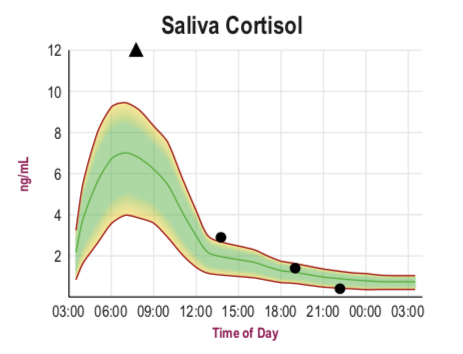Nutrition for Stressful Times
Self care often slips to the bottom of our list during stressful times (hello 2020!). But this is when nourishing practices can serve us the most.
Life is plain stressful these days and I have felt myself falling behind in some of my work. The old me would have gritted through my stress. I would have worked and pushed harder. I used to do this all the time when I was in school and while studying for my board exams. I used to approach my work with tunnel vision and completely ignored my body’s need for rest. As a result, my body paid the toll. I would get migraines, insomnia and digestive issues.
But when I was diagnosed with cancer last year, I decided that I could no longer override my body’s need for rest for the sake of ‘productivity’. My intuition has told me to slow down. And even though I still slip into old habits of overthinking and overworking, I’ve gotten much better at slowing down and listening. At giving myself white space to process and heal.
Because REST IS A NOURISHING ACTION and essential for healing.
And even if it doesn’t always come easy - it is so very necessary.
Many of my clients have mentioned how they felt like our nutrition work has been supportive for their mental health during the craziness of this year. So I thought it could be helpful to share how super simple practices can be wildly nourishing during these strange and stressful times.
What is Stress?
There are two main types of stress: acute stress and chronic stress. Our body’s fight-or-flight (sympathetic) nervous system is built to handle acute forms of stress. The most classic example is: you see a bear and your nervous system kicks into high gear. Your body re-directs blood away from your brain and gut, to your muscles so that you have the energy to run and save yourself.
A combination of cortisol and adrenaline help your body in these types of acute danger situations. But we rely on cortisol (our stress hormone) every day to regulate our circadian rhythm (sleep / wake cycle). Under ideal circumstances, cortisol levels are high in the morning (which is what helps us wake up with energy) and tapers off throughout the day so it is low by the time you go to bed at night and you can get a good, deep night’s rest.
In our world, most of the daily stress we experience typically is not the running from a bear kind of stress. Instead, the chronic stress we experience is a combination of emotional and physical stressors.
Emotional stress can be any sort of perceived or real stress - from the psychological impact of illness, grieving, to daily job stressors, money and family (not to mention a global pandemic, civil unrest, election year and so on).
Physical stress can be obvious like illness or surgery, but our body’s can also be physically stressed from high intensity workouts, poor blood sugar control, skipping meals, not eating enough, eating inflammatory foods and so on.
How to Reclaim Your Health and Start Healing Your Body
If you’re ready to cut through the nutrition noise and start making changes to actually heal yourself — follow this guide. You get:
√ Mindset Tools to make healthy changes feel easy and exciting.
√ Nutrition Tips & Strategies to guide you towards the healthiest and highest quality ingredients.
√ An Action Plan - step-by-step guidance on how to create an effective nutrition plan (starting today).
How does stress affect our health?
The adrenal glands are the body’s stress glands that release cortisol (stress hormone) in response to both emotional and physical stressors. Although many of us are under constant stress, our bodies weren’t built to experience stress 24/7.
Imagine for a moment that your body was like a car - chronic stress combined with grind culture is like constantly driving your car and keeping your foot on the acceleration without ever stopping for maintenance or fuel. At some point your car will break down on the side of the highway.
While our bodies are much different than a car, the principle is the same. Hustling through times of stress can deplete the adrenals and start impacting your body’s overall wellness and ability to function in the world. This can lead to a host of health issues like fatigue, mood imbalances (like irritability, depression, anxiety) and even contribute to more serious conditions like heart disease, cancer and autoimmune conditions, among others.
The most common ways I see stress impacting nutritional health include:
Digestive issues: the brain and gut are directly connected by the vagus nerve. Stress and anxiety can impact digestive health and visa versa. In addition, the gut contains immune cells (IgA immunoglobulins) that line the mucous layer of the gut. Chronic stress can lower IgA levels and can contribute to leaky gut and other associated inflammatory conditions.
Hormone imbalances - Many of our hormones are interdependent and are involved in the same chemical pathways. High stress may increase the body’s demand for cortisol and can indirectly impact hormones like thyroid hormone and sex hormones (estrogen, progesterone, testosterone).
Mood imbalances - such as anxiety, depression and insomnia are also linked to chronic stress. Stress impacts the production of neurotransmitters like serotonin, dopamine, GABA, adrenaline, noradrenaline and glutamate, to name a few. Each of these neurotransmitters have a different impact on our brain health. For example, serotonin is our ‘feel good’ neurotransmitter that helps us feel happy and supports melatonin production for a good night’s rest. Glutamate is a neurotransmitter that can increase anxiety.
Nourishing practices for stressful times:
Eat every 3-4 hours. When you go more than five hours without eating, the body releases adrenaline and cortisol to increase the body’s blood sugar and get fuel to your brain and muscles. Eating regularly can stabilize the body's blood sugar and can keep unnecessary surges of cortisol at bay.
Hydrate properly. Studies have shown that dehydration can actually increase the release of cortisol. To calculate your body’s water needs: half your body weight (in pounds) and that’s how many ounces of water you’ll need per day. Increase this amount if you are drinking caffeine or alcohol or if you are excessively sweating.
Eat foods high in omega 3 fats. These are types of essential fats that can help manage the release of cortisol and adrenaline during stress. Food sources of omega 3 fats include fatty fish like wild salmon, pole-caught tuna fish and sardines. Vegan sources of omega 3 fats include walnuts, chia and hemp seeds.
Limit your intake of refined sugars. Although sugar and stress seem to go hand in hand, munching on sugary foods throughout the day can actually be more taxing on the body during times of stress. Sugar can cause spikes and crashes in blood sugar, which can wear on the adrenal glands. Cortisol is released when blood sugar levels drop because it also helps to maintain blood sugar. If you really have a hankering for some sugar, pair it with a healthy fat like almonds, walnuts or macadamia nuts, which can help curb spikes and dips in blood sugar.
Prioritize sleep. Aim for at least 7-9 hours per night. Sleep is the most regenerative and anti-aging practice. Best of all it’s free! Sleep is so healing because melatonin (our main sleep hormone) is also a potent antioxidant, which repairs and restores cells during the night. In addition, cortisol rebounds between 12pm and 8am, which is why deep sleep is critical for a healthy circadian rhythm!
Discover The Healing Power of Breathwork
Breathwork is an active meditation practice that helps move stuck energy and emotions in the body. This practice helps to align the body and mind, and highlight areas of your life where you may need more TLC and healing.
When you sign up you will receive a video lesson on how to get started along with a pre-recorded 10-minute breathwork meditation.
functional medicine testing for stress, fatigue, energy and mood balance:
Testing can be really helpful for individuals who have the nutrition foundations but who are still experiencing fatigue, poor concentration, irritability, anxiety and depression. Knowing your specific adrenal output and neurotransmitter levels can help us determine the most effective area of support. There are two types of tests that I like to run to investigate energy levels and mood:
Adrenal test measures your body’s production in cortisol throughout the day. We run 4-5 saliva samples throughout the day to map your body’s circadian rhythm. Note that this is a much different test than the single blood levels that doctors typically run. Adrenal insufficiency can vary - some people may have high cortisol output and others low (while others may experience highs and lows). There are many different combinations, which is why it is important to test so we can individualize your approach.
Neurotransmitter tests can also be really helpful if you are experiencing mood imbalances (like anxiety or depression), difficulty concentrating, high anxiety or insomnia. Understanding where your specific neurotransmitter levels are can guide us to the best ways to provide your body with support.
Note that these levels can also change throughout time. During high stress times, your adrenal output and neurotransmitters levels will look different than if you are experiencing an uneventful and restful period in life.
Stress and Anxiety Case Study:
Here’s an example of an adrenal stress test and neurotransmitter test that I recently ran on a client. After working together for several months, this client was eating incredibly clean and seeing some big changes in their digestive health, but was sleeping poorly and experiencing high amounts of stress and anxiety. As you can see below, their cortisol test showed high amounts of morning cortisol as well as high histamine levels and lower than optimal dopamine.
Science lesson: Histamine is a neurotransmitter that can contribute to high anxiety levels. Dopamine is the ‘pleasure neurotransmitter’, which can be depleted under stress as it is a precursor to epinephrine and norepinephrine.
In addition to their nutrition plan, we added herbs and nutrients to support healthy dopamine levels, lower histamine and to improve depth of sleep. I also recommended a low histamine diet for her to reduce the overall histamine load in their body. In a matter of a few weeks, she felt less anxious in the afternoon and evenings and was sleeping like a baby!
Bottom line: we need to first focus on the nutritional and lifestyle tools that set the foundation for improving your body’s stress resilience. If you are still experiencing energy, mood or concentration issues, we can always test your adrenals and neurotransmitters to further individualize your approach. This testing is available in my coaching programs. Click here to learn more about working together.
Nourish without the overwhelm:
Choose one of the above nourishing practices to prioritize and be consistent with as your goal for this week. Although some of these may be simple, it is the small and consistent changes where we will see the biggest impact in long term health.





